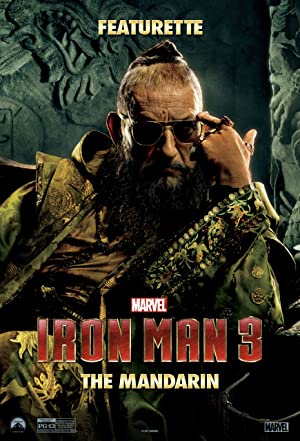Over the last 14 years, the Marvel Cinematic Universe has delivered interconnected stories spanning 29 feature films (and seven streaming series, various one-shots and a special that may or may not be connected). These projects are largely adapted from the comics but, of course, the change in medium necessitated alterations for various reasons, such as: rendering well-known storylines a little less predictable; ditching ridiculously over-the-top costumes; injecting relative realism; or eliminating problematic characters. And while the MCU has established itself as the most reliable and consistent franchise in Hollywood, certain things have changed over the many years and sequels -- sometimes drastically. However, the powers that be at Marvel Studios have, on occasion, been known to completely change course upon realizing that the source material had it right the first time (offensive racial stereotypes aside). Here are the three biggest U-turns in Marvel cinematic history:
Magic
The Marvel Cinematic Universe explicitly denied the existence of magic in 2011's Thor, with the title character and future Avenger explaining to Jane Foster that what people viewed to be the m-word was merely alien science. Or to quote Jane -- who quotes writer Arthur C. Clarke, "Any sufficiently advanced technology is indistinguishable from magic." However, this explanation would be completely contradicted, beginning six years later, by another cinematic origin story: the one that introduced mainstream moviegoers to full-on sorcerer, Stephen Strange. Not only did the famed neurosurgeon-turned-wizard go on to master the mystic arts but he would travel to alternate dimensions and face off against demons, fellow sorcerers and evil witches. But actually, the seeds of doubt regarding Thor Odinson's magic rationalization were planted in his very own debut solo film. After all, his very own father cast a spell on his vaunted hammer, mjolnir. Perhaps illusions, lightning manipulation and instantaneous travel can all be attributed to advanced technology. But how do you logically explain verbal enchantments?
Now, of course, the MCU is packed to the gills with werewolves, vampires, conjurers and all manner of mysticism.
The Mandarin
The conclusion of Iron Man's solo trilogy ostensibly introduced the Avenger's comics nemesis, the culturally-insensitively named The Mandarin. However, the film revealed that this supposed terrorist leader was merely a fiction dreamed up by tech mogul Aldrich Killian and portrayed by a hired actor. Killian used the made-up identity as a smokescreen for his own high-tech machinations -- conveniently explaining away a racist comics character. The aforementioned thespian, Trevor Slattery, would subsequently be broken out of prison by "the real Mandarin" (in the MCU one-shot, All Hail the King), who would ultimately be revealed to be a thousand-year-old warlord named Wenwu, empowered by 10 iron and apparently supernatural rings.
He explains in Shang-Chi and the Legend of the Ten Rings that the Mandarin was one of several nicknames bestowed upon him throughout his long life.
The Multiverse
The Multiverse concept is initially presented in Spider-Man: Far From Home, when superpowered do-gooder, Quentin "Mysterio" Beck, travels from an alternate universe to the one that the Avengers inhabit. Following a short-lived alliance with Spider-Man and high-profile acts of heroism, Beck is exposed as a disgruntled former employee of Stark Industries-turned-swindler, whose "powers", as well as the Elementals he battles, are merely holographic illusions. The entire Multiverse story turns out to be a con job (by both Beck and the filmmakers).
A mere two years later, 2021 streaming series Loki explains that a genuine Multiverse exists. And that same year, the concept is expanded upon in Web-Head's very next movie: No Way Home -- and the movie's follow-up, Doctor Strange in the Multiverse of Madness, would fully embrace the idea, carrying it in its very title. Not long after, Marvel Studios would announce that the MCU's next couple of phases will indeed be known as "The Multiverse Saga", whose chief antagonist, Kang the Conqueror has a rich comics history of time-travel, will (or already has?) initiate a multiversal war in a multiplex near you in the coming years.







No comments:
Post a Comment